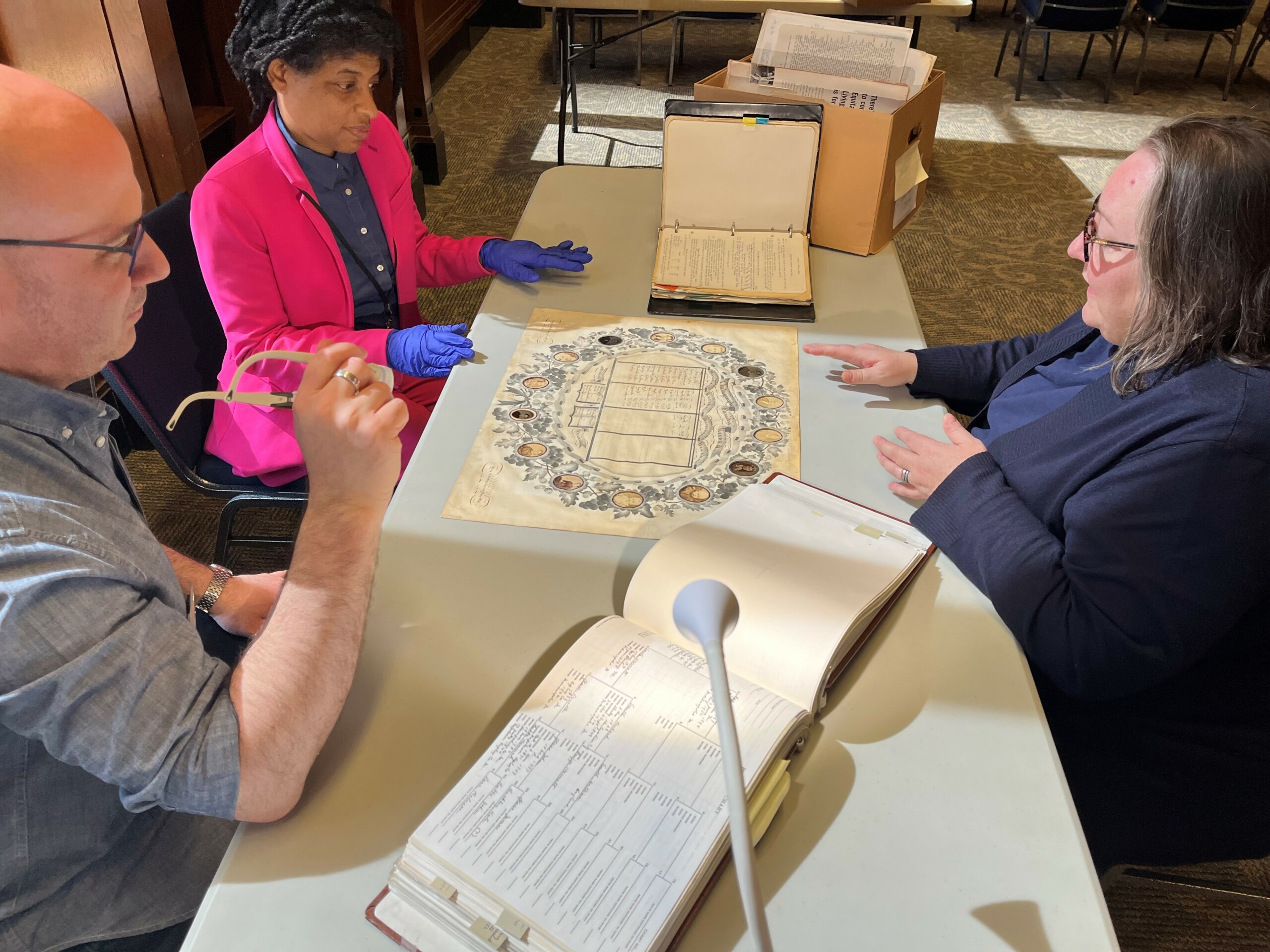The Indiana State Library is celebrating Preservation Week this month by holding a conservation clinic and encouraging guests to stop in – and to bring their family heirlooms with them. A team of experienced conservators will be on hand at “Preserve Your Family Treasures: The Indiana State Library Public Conservation Clinic” to show individuals how to best care for antiques and artwork.
Conservators Seth Irwin of the Indiana State Library, Valinda Carroll of the Indiana Historical Society, Meghan Smith of the Indiana State Museum, Sharon Battista of S D Battista Paintings Conservation and Doug Sanders of the Indianapolis Museum of Art at Newfields will advise attendees on the best methods to store and preserve their documents, photographs, maps, textiles, paintings and small wood and metal pieces.
 “A public conservation clinic is a great opportunity for people to interact with professional conservators, attain information about their valuable pieces and learn how to better preserve those pieces for the future,” Irwin said.
“A public conservation clinic is a great opportunity for people to interact with professional conservators, attain information about their valuable pieces and learn how to better preserve those pieces for the future,” Irwin said.
“Preserve Your Family Treasures” will take place in the Indiana State Library’s History Reference Room on Monday, April 29 from 11 a.m.-3 p.m. Admission is free and parking will be validated for those who park in the Senate Avenue garage, directly across from the library. The Indiana State Library is located at 315 W. Ohio St. in downtown Indianapolis.
This event is designed to dispense advice on the preservation of objects. No monetary evaluations or appraisals will be conducted. Appointment and registration are encouraged, but not required.
The conservation clinic will also be available to attend online via Zoom. The in-person event is eligible for one LEU for Indiana library staff. The online version of the event is eligible for up to four LEUs for Indiana library staff based on the login attendance report. Click here to register for the in-person event and click here to register for the online event.
Please contact Seth Irwin, conservator at the Indiana State Library, with any questions about “Preserve Your Family Treasures: The Indiana State Library Public Conservation Clinic.”
This blog post was submitted by John Wekluk, communications director.
